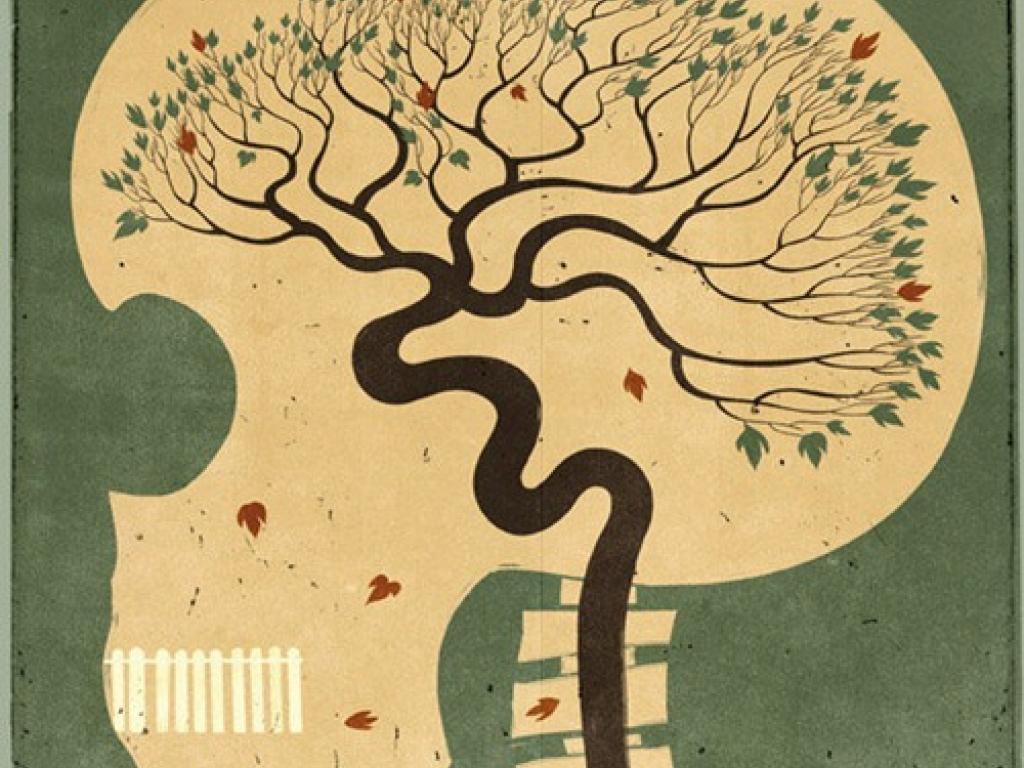So, how do you feel? The physiological impacts of climate change.

By Katrine Claassens
“I feel nervous. I get worried and anxious, but also a little curious. The curiosity is a strange, paradoxical feeling that I sometimes feel guilty about. After all, this is the future of the people I love.” - Dr. Ailie Gallant, School of Earth, Atmosphere and Environment at Monash University
Adverse psychological and emotional responses to climate change are racking up a repertoire of names: “Climate Depression,” “Climate Change Delusion,” “Climate Trauma,” “Pre-traumatic Stress Disorder,” “Solastalgia” and “Ecological Anxiety Disorder,” to name a few. The physical health impacts expected (and manifest) ofclimate change are well documented. Less well-known are the impacts that the problem will have on our psychological well-being.
“So, what do I feel about climate change? Interest, intellectual curiosity, satisfaction, excitement, extreme worry, sadness, fear and perhaps a glimmer of hope...” - Dr Ruth Mottram, Danish Meteorological Institute
Humans have lived through climate change before. Throughout pre-historic times our species faced threats to our existence as populations battled to adapt to dramatically changing climatic conditions (mostly due to advancing and receding ice ages). It has even been suggested that these fluctuating climatic conditions propelled human evolution. We will never know how those early minds experienced climate change. What we do know is that they adapted themselves accordingly and survived. However, as our world departs from the Holocene (the current geological epoch that has been characterised by relative climate stability), we face conditions arguably more testing than those of our ancestors: the world’s population is exponentially bigger, largely dependant on the climate-sensitive crops, and water and other natural resources are much depleted. It seems we are more vulnerable than ever. How will people cope emotionally with the losses of livelihoods and homes, dislocation and conflict that climate change heralds? Already documented are depression, suicide, anxiety and general emotional distress. Furthermore, inaction on climate change has all been linked to the toll it takes on the human psyche.
"I am always hopeful – but 4 to 5 degrees Celsius of change will be a challenge to survive." - Dr. Jim Salinger, University of Auckland
The Yale project on climate change communication recently published a paper entitled “The Role of Emotion in Global Warming Policy Support and Opposition.” They found that emotions of fear, anger, worry and guilt were “stronger predictors of global warming policy support than cultural worldviews” and that 50% of variance in public support for global warming policies could be explained by emotional measures alone. A paper by the World Wildlife Fund (WWF) argues that how we feel affects how, and whether we act, on climate change. Climate change, the WWF says, threatens not just our existence but our self-esteem, integrity of our identity and capacity to function normally mentally.
“It makes me feel sick. Looking at my children and realizing that they won't have the same quality of life we had. Far from it. That they will live in a world facing severe water and food shortages, a world marked by wars caused by the consequences of climate change.” - Katrin Meissner, Associate Professor, Climate Change Research Centre, University of New South Wales
Scientists at the frontline
It is not just those who are geographically vulnerable to climate change that experience psychological distress. The US-based researchers Paul Robbin and Sarah Moore move the focus to how scientists working at the forefront of ecological crisis are dealing with the implications of their research. Robbins and Moore found that that in some sciences, the observation of rapid ecological change and its implications are effecting not just personal emotions but how science is communicated. We need to take the emotional implications of climate change for scientists seriously when we read that Camille Parmesan, who shared the 2007 Nobel Peace with Al Gore because of her work as a lead author with the IPCC, said that she has contemplated leaving the field of climate change research because it has made her “professionally depressed.”
“So, what do I feel about climate change? Interest, intellectual curiosity, satisfaction, excitement, extreme worry, sadness, fear and perhaps a glimmer of hope...” - Dr Ruth Mottram, Climate Scientist, Danish Meteorological Institute
It seems Parmesan is not alone. Similar views are expressed on the website isthishowyoufeel. The site is the product of Joe Duggan, a scientist from Australia, who wrote to top climate scientists asking them to send him hand-written letters on how they feel about climate change. The idea behind his project was to show how scientists, who have dedicated large parts of their lives to the study of climate change, are feeling. The letters range from expressing deep sadness to cautious optimism. They are a compelling and moving testament to how those who truly understand climate change are dealing with the issue intellectually and emotionally.
Coping with it
"Life would be so much simpler if climate change didn’t exist. But as scientists, we don’t have the luxury of pretending." - Kevin Walsh, Associate Professor, School of Earth Sciences, University of Melbourne
George Marshall, founder of the Climate Outreach Information Network, gives us some suggestions on how we can adopt emotional coping mechanisms that don’t lead to emotional or environmental dysfunction. According to Marshall, we need to look at how we are evolutionarily hard-wired to react and perceive threats and understand what motivates and threatens us. This, he writes will enable us to gain the tools we need to rethink and reimagine climate change, for it is not an “impossible problem.” Our understanding of the psychology of climate change is still in very early stages, but if emotions drive people and people drive change, then consideration of the mental health effects of the issue will be important in the resilience to climate impacts.
All quotes from www.isthishowyoufeel.weebly.com
Picture credit: Dididado